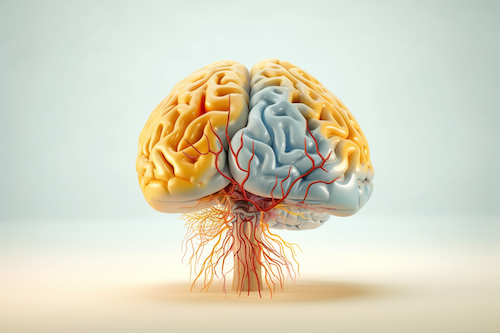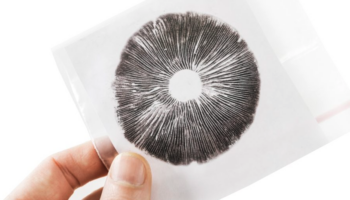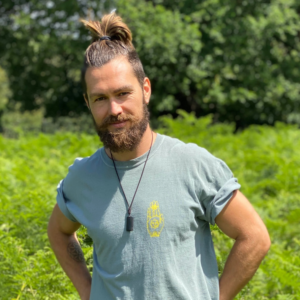Disclaimer: Psychedelics are largely illegal substances, and we do not encourage or condone their use where it is against the law. However, we accept that illicit drug use occurs and believe that offering responsible harm reduction information is imperative to keeping people safe. For that reason, this document is designed to enhance the safety of those who decide to use these substances.
It’s becoming increasingly clear that psilocybin – the active ingredient in magic mushrooms – has powerful, healing effects for psychological disorders.
But, beyond its mental health benefits, what do we know about how psilocybin mushrooms improve brain health?
In this article, we’ll explore the research on psilocybin mushrooms for brain health, highlighting why the medicine is so beneficial in therapy, and how it can help improve overall well-being and cognition.
Psychedelic Mushrooms for Brain Health & Healing: A Re-discovery
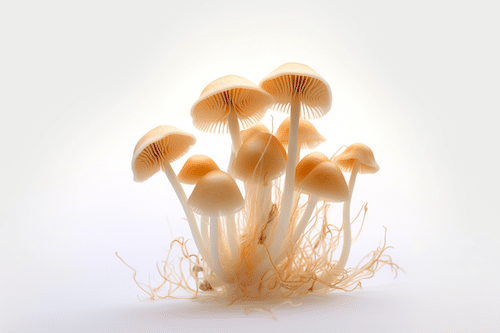
For centuries, hallucinogenic mushrooms have played an integral role in spiritual and healing ceremonies across the Americas. However, it’s only within recent decades their powers have become recognized by the West.
In 1957, mycologist Gordon Wasson published the Life Magazine article “Seeking the Magic Mushroom,” documenting his experience in a traditional Mexican mushroom ceremony. The report spurred the first wave of Western psychedelic mushroom interest within both the hippie movement and the early psychedelic research community.
One year after Wasson’s article, Albert Hoffman – the scientist who famously discovered LSD – isolated psilocybin, the active ingredient in magic mushrooms, from a collection of psilocybin mexicana. His laboratories began synthesizing the compound, and researchers, including the famed Timothy Leary, began investigating its effects.
Perhaps the most famous of psilocybin experiments was Leary and Dr. Richard Albert’s Harvard Psilocybin Project. During these studies, the researchers took psilocybin – along with a group of Harvard professionals and students – to determine its mental and emotional effects.
In their first study, out of 38 tested students, 69% were “judged to have attained marked broadening of awareness.” In the second, 95% of the 167 subjects thought that psilocybin “had changed their lives for the better.”
Yet, despite uncovering its benefits, psilocybin research stopped following the 1970 Controlled Substances Act, in which all psychedelic drugs were categorized as Schedule 1 prohibited substances.
It wasn’t until 2006 that psilocybin would reappear in the formal scientific literature.
Kick-starting a new wave of psilocybin research, a clinical trial from the University of Arizona in 2006 showed psilocybin therapy was both safe and effective for patients with obsessive-compulsive disorder (OCD).
Since then, multiple clinical trials have found psilocybin to be a powerful treatment for various psychological disorders, including depression, end-of-life anxiety, and substance abuse. And as neuroscience techniques continue to develop, more and more findings are showing how the molecule can be hugely beneficial for brain health.
The Neuroscience of Psychedelic Medicines
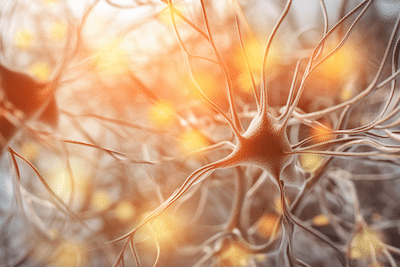
Psychedelics Increase Neuroplasticity
Classical psychedelics, including psilocybin, DMT, and LSD, all interact primarily with a receptor in the brain called 5-HT2A. Although its exact function is unclear, 5-HT2A naturally responds to the chemical messenger serotonin, which influences functions like inflammation, mood, and hormones.
When psychedelics interact with 5-HT2A receptors, they can increase the production of brain-derived neurotrophic factor (BDNF) – a molecule essential for the survival and growth of nerve cells.
Importantly, BDNF regulates a process known as neuroplasticity.
Defined as “the capacity of the nervous system to modify itself, functionally and structurally,” neuroplasticity is the key mechanism underlying learning.
Scientists believe neuroplasticity can partly explain why psychedelics are so helpful for mood disorders. By increasing their learning capacity, psilocybin can help mental health patients more easily adopt new positive outlooks and healthier habits to improve their everyday life.
Because of neuroplasticity, scientists also believe psychedelics could be helpful in brain damage, such as stroke and traumatic brain injuries (TBI).
By helping regrow lost nerve cells and rewire broken neural connections, psychedelics could help these patients re-learn essential skills and functions during recovery.
With evidence for psilocybin effectiveness in animals, the biotechnology company Algeron Pharmaceuticals is investigating whether DMT can aid rehabilitation from acute stroke.
Psilocybin Mushrooms Increase Entropy
Another core mechanism of psychedelics is neural entropy.
The “entropic brain hypothesis” was put forward by Dr. Robin Carhart-Harris from Imperial College London in 2014, following a series of functional magnetic resonance imaging (fMRI) that showed psilocybin reordered the brain’s normal network.
In these experiments, researchers found tightly associated areas in the brain became less connected during psilocybin experiences. These findings led the researchers to propose that psychedelics allow for a “temporary reorganization of activation patterns,” allowing for new areas across the brain to interact and connect.
When it comes to psilocybin’s mental health benefits, entropy is particularly important, since specific brain connectivity patterns can manifest as depression or addictive behaviors.
These connectivity patterns can grow increasingly rigid over time, making it harder to break cycles of negative self-talk, cravings, and compulsive behavior.
However, by loosening these patterns and increasing the ability to form new connections, psychedelics can help people step outside their ordinary way of being, offering an opportunity to change negative moods and behaviors.
Grow 1 Year's Worth of Microdoses in Just 6 Weeks
Third Wave partnered with top mycologists to create the world’s easiest and best mushroom growing program (kit, course, and expert support).
- Pre-sterilized and sealed
(ready to use out of the box) - Step-by-step video and text course
- Access to growing expert in community
- Make your first harvest in 4-6 weeks
- Average yield is 1 - 4 ounces (28-108g)
- Fits in a drawer or closet
- Enter info for Third Wave discounts:
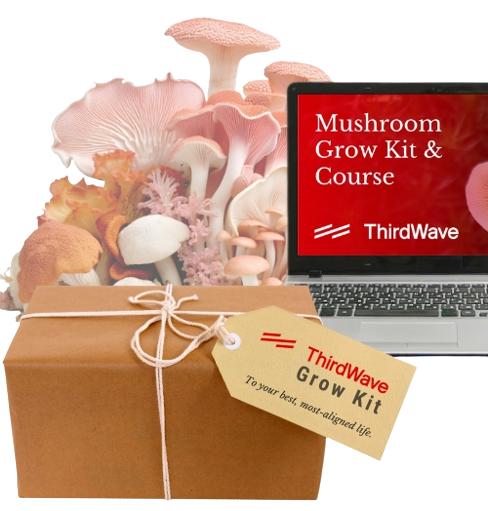
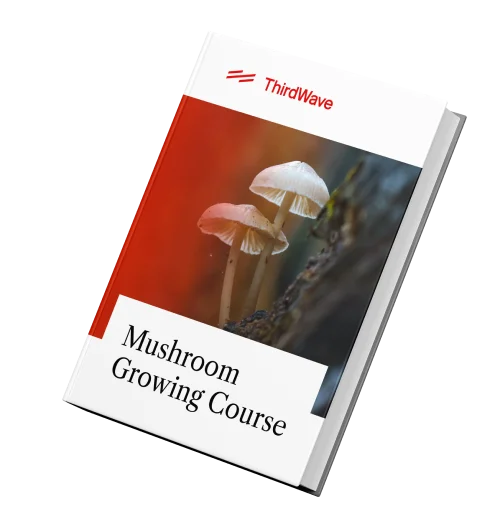
Grow 1 Year's Worth of Microdoses in Just 6 Weeks
Third Wave partnered with top mycologists to create the world’s easiest and best mushroom growing program (kit, course, and expert support).
- Pre-sterilized and sealed
(ready to use out of the box) - Step-by-step video and text course
- Access to experts in community
- Make your first harvest in 4-6 weeks
- Average yield is 1 - 4 ounces (28-108g)
- Fits in a drawer or closet
- Enter info for Third Wave discounts
Psilocybin Mushrooms in Therapy
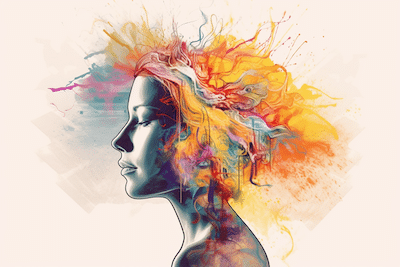
Based on this capacity to open up the brain, psilocybin has become a popular tool of interest in mental health therapies.
In psilocybin therapy, mental health patients undergo a series of therapeutic sessions, often combining non-drug, conventional talk therapy sessions with guided psilocybin experiences.
The most common form of psilocybin therapy is psilocybin-assisted psychotherapy (PAP). In PAP, patients are encouraged to go into the roots of their problems while on psilocybin, and with increased openness, are encouraged to try and better understand why they may feel and behave the way they do.
From this new knowledge, the patient then works with the therapist to make life changes and improve their well-being accordingly.
One of the first major studies to shine a light on psilocybin therapy was a paper from Johns Hopkins University, published in 2016, which investigated psilocybin to treat end-of-life distress.
For the clinical trial, 51 cancer patients were administered either a placebo or a high dose of psilocybin twice over five weeks. Following psilocybin, the high-dose patients had significant improvements in their scores for anxiety and depression, which were maintained at the six-month follow-up.
Another study from Johns Hopkins, published last year, investigated psilocybin therapy in treatment-resistant depression (TRD), marking the first psychedelic trial to receive a federal grant from the National Institutes of Health in over half a decade.
In the study, TRD patients given a single high dose of psilocybin showed significant reductions in their depression scores, with results lasting up to a year.
Although no serious adverse events were reported, one of the patients experienced a headache and ongoing visual distortions after psilocybin. However, these effects were relatively benign, and, based on pools of current evidence, psilocybin therapy consistently appears to be a longer-lasting, safer, and more effective treatment compared with standard pharmaceutical medications.
Based on its powerful potentials for mental health, ongoing clinical trials are currently investigating how psilocybin therapy could treat:
Medicinal Mushrooms for Brain Health
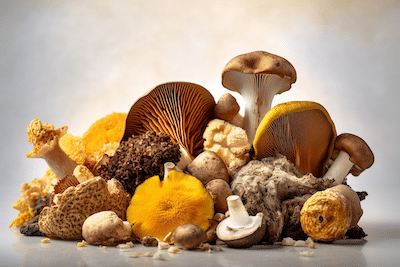
Magic Mushrooms and Brain Protection
In addition to their mental health effects, psychedelic mushrooms can be hugely beneficial for maintaining and improving overall brain health.
For example, in 2021, a study from the University of Pretoria, South Africa, found that four different psilocybin mushrooms decreased the production of proinflammatory mediators.
Under normal circumstances, when the body experiences injuries or infections, proinflammatory mediators play essential roles in fighting pathogens and helping recovery. But when the immune system becomes overactivated for long periods, which is known as chronic inflammation, the build-up of these mediators can cause more damage than good.
In the brain, damage caused by chronic inflammation is associated with several neurodegenerative diseases, including:
- Alzheimer’s disease
- Parkinson’s disease
- Amyotrophic lateral sclerosis (ALS)
- Multiple sclerosis (MS)
Therefore, by preventing inflammation-evoked damage, psilocybin could help protect against neurodegenerative disease.
One year earlier, the University published another paper highlighting the protective effects of psilocybin. Using human cells, the researchers showed that the magic mushroom strain Psilocybe natalensis decreased markers of oxidative stress — a process also associated with cell death and nervous system diseases.
Psilocybin Mushrooms for Brain Health: Cognitive Benefits
Cognition is the mental action or process of acquiring knowledge and understanding through thought, experience, and the senses.
Because of its neuroprotective effects, psilocybin could help maintain optimal conditions in the brain and boost cognitive functions, such as decision-making, learning, and memory.
Moreover, by harnessing the powers of neuroplasticity and entropy, psilocybin may enhance our ability to learn new information and form new ideas, in turn improving creativity and problem-solving.
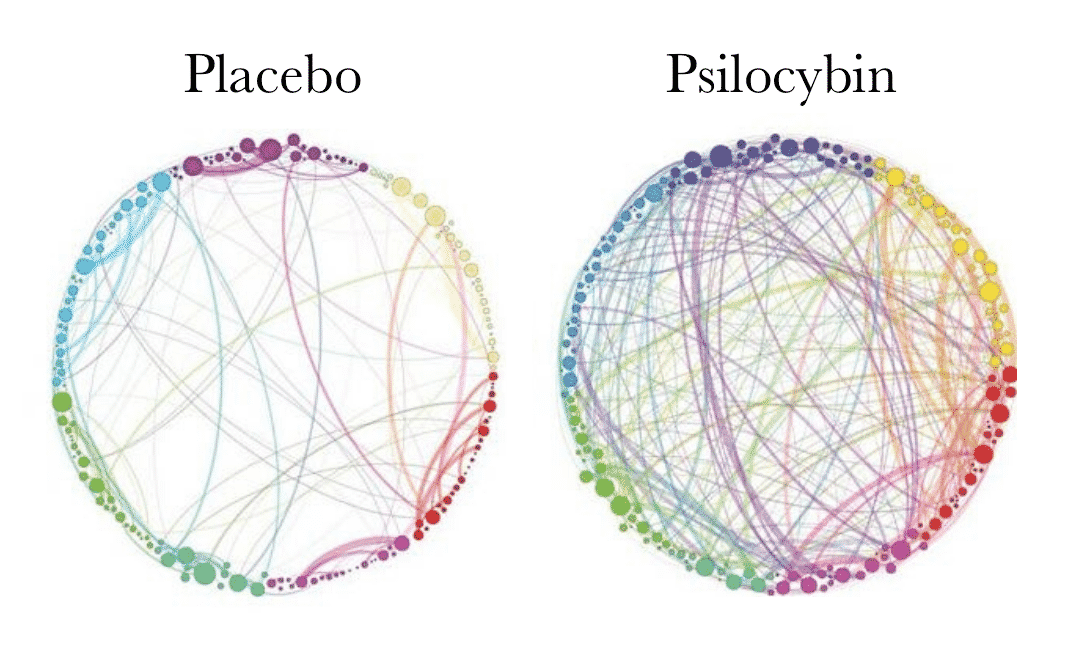
Other Medicinal Mushrooms for Brain Health and Cognition
It’s not just psilocybin mushrooms that are associated with brain health and cognitive function. Rather, most known, edible mushrooms contain essential anti-inflammatory and antioxidant compounds. Some of these have also been shown to decrease the build-up of harmful protein plaques in the brain, known as beta-amyloids.
The most popular mushrooms associated with brain benefits include:
- Lion’s Mane
- Chaga
- Reishi
- Turkey Tail
- Shiitake
When microdosing, some people supplement with other medicinal mushrooms to maximize their chance for positive outcomes.
For example, since Lion’s Mane is also neurogenic (meaning it increases neuroplasticity), microdosers may take Lion’s Mane alongside their psilocybin mushrooms to boost their cognitive effects. Along with niacin to increase blood flow, this combination is known as a Stamets’ Stack.
If you’d like to enhance your brain health with medicinal mushrooms, check out our high-quality mushroom grow kits — arriving with a step-by-step guide for flawless growth. Not only can growing shrooms make for a fun and low-cost hobby, but you’ll have your own reliable, year-round supply.
Grow 1 Year's Worth of Microdoses in Just 6 Weeks
Third Wave partnered with top mycologists to create the world’s easiest and best mushroom growing program (kit, course, and expert support).
- Pre-sterilized and sealed
(ready to use out of the box) - Step-by-step video and text course
- Access to growing expert in community
- Make your first harvest in 4-6 weeks
- Average yield is 1 - 4 ounces (28-108g)
- Fits in a drawer or closet
- Enter info for Third Wave discounts:


Grow 1 Year's Worth of Microdoses in Just 6 Weeks
Third Wave partnered with top mycologists to create the world’s easiest and best mushroom growing program (kit, course, and expert support).
- Pre-sterilized and sealed
(ready to use out of the box) - Step-by-step video and text course
- Access to experts in community
- Make your first harvest in 4-6 weeks
- Average yield is 1 - 4 ounces (28-108g)
- Fits in a drawer or closet
- Enter info for Third Wave discounts
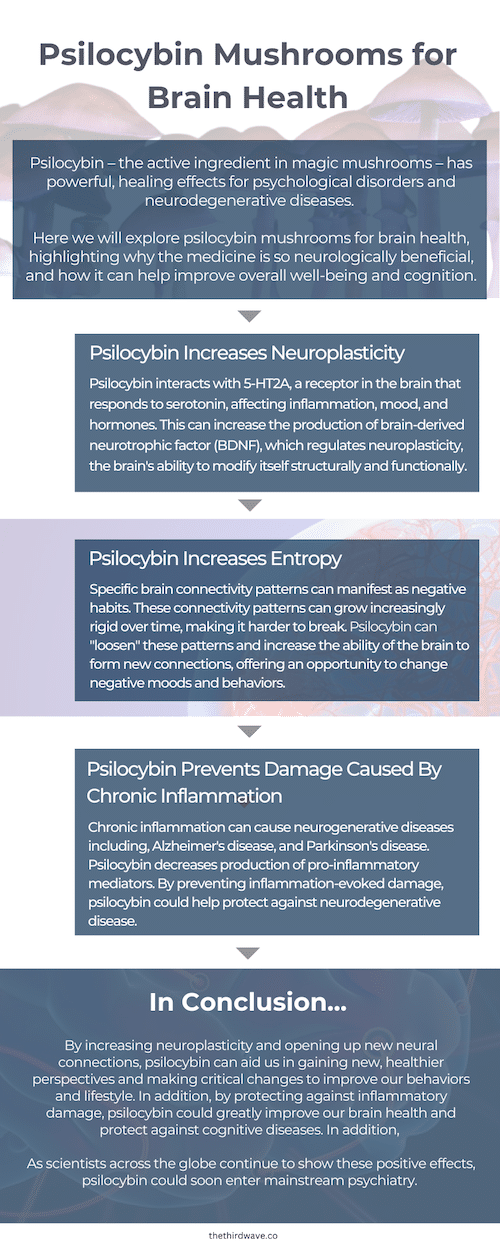
Microdosing Mushrooms for Brain Health Benefits
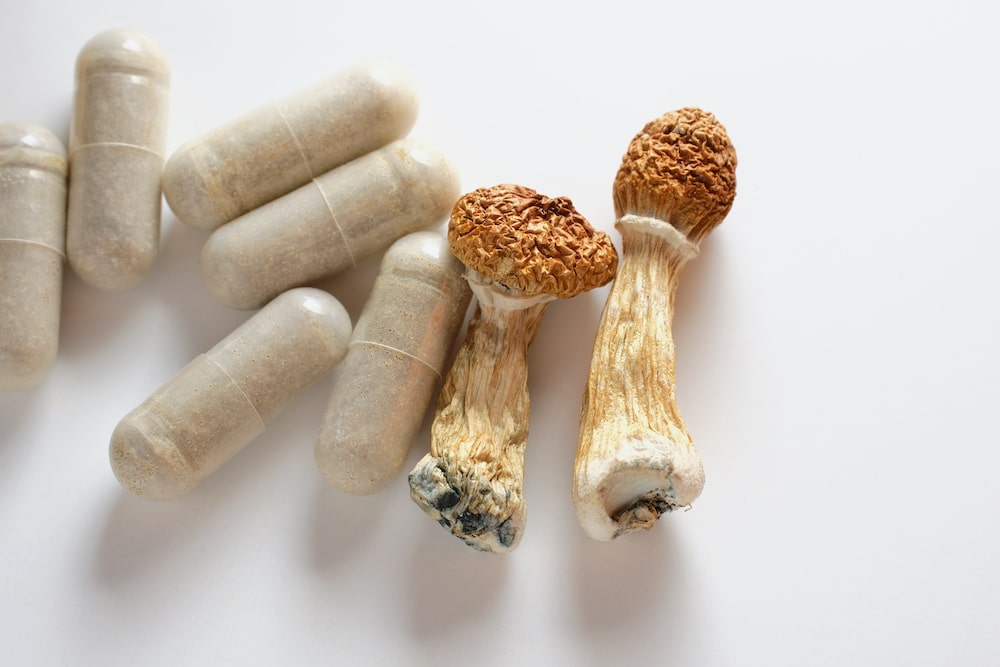
Since most psilocybin research to date has focused on psychoactive doses, the brain-related benefits of microdosing are less clear. However, some evidence suggests microdosing may similarly boost brain health and cognition.
In a recent study from the University of British Columbia, participants who microdosed showed significantly improved scores on mental health, mood, and cognition after one month compared to their non-microdosing peers.
Additionally, the study found psychomotor performance was particularly enhanced in microdosers over the age of 55, suggesting microdosing psilocybin could help repair age-related brain impairment.
In 2020, another study from the Beckley Foundation found small doses of LSD could increase BDNF concentration in healthy volunteers, suggesting that microdosing also improves neuroplasticity.
In line with these findings, common effects from microdosing self-reports demonstrate improved mental well-being and cognition, such as:
- Decreased stress
- Decreased symptoms of depression and anxiety
- Improved mood
- Increased creativity
- Increased focus
If you’re interested in experiencing these benefits yourself, be sure to check out the Third Wave’s Microdosing Course. With compassionate guidance from experts, the course provides clear, in-depth instructions for you to gain the most optimal outcomes from microdosing, in line with your unique goals.
For a quick overview of the 6 basic steps to safely explore microdosing, check out our video here:
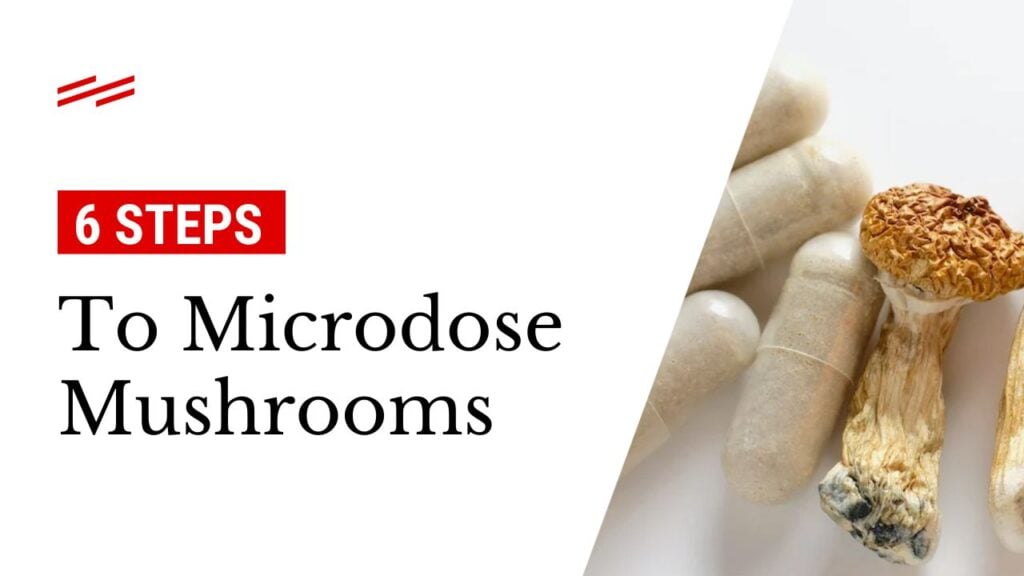
Psilocybin Mushrooms for Brain Health: Risks and Precautions
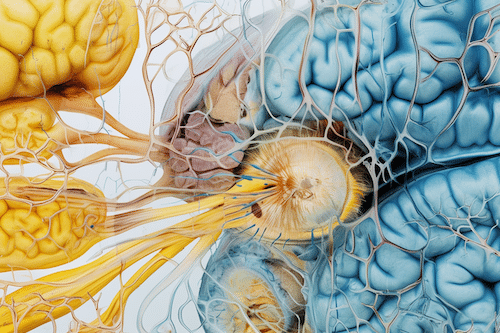
Psilocybin is considered to be non-neurotoxic, meaning it doesn’t have any damaging effects on the brain. That being said, the medicine isn’t free from other physical and mental side effects.
Physical side effects from psilocybin can include:
- Increased heart rate
- Increased blood pressure
- Nausea
Although psilocybin’s physical side effects are generally mild and transient, it’s possible that if mixed with other serotonergic-acting drugs (such as antidepressants), the risk and severity of psilocybin’s side effects might be increased because of a combined action at serotonin receptors. This interaction also means mixing psilocybin, and serotonergic drugs can prevent its psychoactive effects.
Because of a combined action at serotonin receptors, concerns have been raised around using psilocybin with other serotonergic-acting drugs (such as antidepressants). However, in a recent study, the researchers found that combining psilocybin with the antidepressant escitalopram caused no major adverse effects.
That being said, it’s possible that psychedelic effects could be blunted in patients also using serotonergic drugs.
Psychologically, side effects of psilocybin can include:
- Increased anxiety
- Increased paranoia
- Having a psychedelic crisis or “bad trip”
- Insomnia
- Panic attacks
Because psilocybin’s psychological risks are mainly associated with its psychedelic effects, microdosing, on the whole, may be less risky. However, we still don’t know enough about the science of long-term microdosing to make any firm conclusions about its safety.
Another risk associated with psilocybin is Hallucinogen Persisting Perception Disorder (HPPD), which is where users continue to have altered perception even once the drug has worn off. The science behind what causes HPPD remains unknown, but the risk for HPPD seems to be more likely if people have distressing psychedelic experiences.
Because of psilocybin’s psychological risks, we strongly advise that if you plan to use full doses of psilocybin, you do so in a supported setting, such as a guided psilocybin ceremony or retreat. To browse a selection of well-reviewed centers offering safe and facilitated psilocybin sessions, be sure to check out our psychedelic retreat directory.
As well as side effects, it’s important to consider psilocybin’s legal implications, since it’s largely prohibited across the globe. To learn more about where you might be able to access psilocybin for medical, healing, and ceremonial purposes legally, you can read our recently published Where Are Mushrooms Legal guide.
Psilocybin Mushrooms for Brain Health: Final Thoughts
By protecting against inflammatory and oxidative damage, psilocybin could greatly improve our brain health and protect against cognitive diseases.
In addition, by increasing neuroplasticity and opening up new neural connections, psilocybin can aid us in gaining new, healthier perspectives and making critical changes to improve our behaviors and lifestyle.
As scientists across the globe continue to show these positive effects, psilocybin could soon enter mainstream psychiatry.
If you’re curious as to what the brain health benefits of mushrooms can offer in your life, make sure you check out the Third Wave’s Mushroom Grow Kit. With straightforward, easy-to-follow instructions with videos, you could have a high-quality, abundant harvest in the comfort of your own home.
Start growing your mushrooms today.
Grow 1 Year's Worth of Microdoses in Just 6 Weeks
Third Wave partnered with top mycologists to create the world’s easiest and best mushroom growing program (kit, course, and expert support).
- Pre-sterilized and sealed
(ready to use out of the box) - Step-by-step video and text course
- Access to growing expert in community
- Make your first harvest in 4-6 weeks
- Average yield is 1 - 4 ounces (28-108g)
- Fits in a drawer or closet
- Enter info for Third Wave discounts:


Grow 1 Year's Worth of Microdoses in Just 6 Weeks
Third Wave partnered with top mycologists to create the world’s easiest and best mushroom growing program (kit, course, and expert support).
- Pre-sterilized and sealed
(ready to use out of the box) - Step-by-step video and text course
- Access to experts in community
- Make your first harvest in 4-6 weeks
- Average yield is 1 - 4 ounces (28-108g)
- Fits in a drawer or closet
- Enter info for Third Wave discounts

